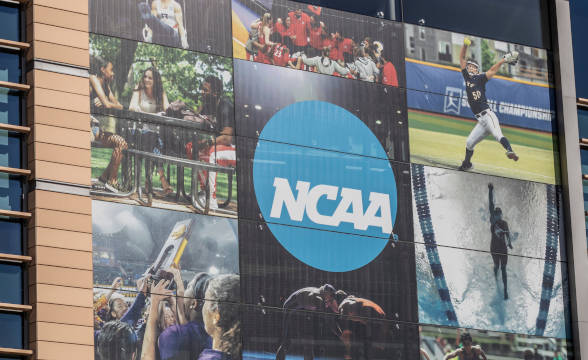The National Collegiate Athletic Association (NCAA) Division I Mid-American Conference (MAC) filed a request with its governing body to clarify its restrictions on sports wagering, Sportico reported.
Prohibition from Involvement with Sportsbooks
The formal “interpretation request” MAC filed with the NCAA earlier this year is seeking clarity related to the prohibition for athletes, staff members, MAC employees and member university leaders from gambling on sports as defined by Section 10.3 of the NCAA’s Division I manual.
Under the same section, those people are prohibited from providing information to anyone associated with sports betting, which many consider as a barrier for conferences to signing official data distribution deals and the request is essentially looking to open up the door for this type of lucrative agreements.
MAC’s membership base covers the Great Lakes region spanning from Western New York to Illinois: nine of its full member schools are located in Ohio and Michigan, and its single members are located in Indiana, Illinois and New York. All five states already legalized and launched sports betting.
MAC’s request for clarification makes even more sense when considered in the context of the data and sponsorship deal the conference signed with sports data, content and technology provider Genius Sports in March, as essentially, it is looking to clear the path for Genius to sell official MAC data to its sportsbook partners and open a new source of revenue for the collegiate sports organization.
Juggling between Integrity and Revenue
With no specified timetable to respond, it could take months for the NCAA to respond to the interpretation request but should it state that conferences can sell official data to sponsors and partners related to sports wagering, it will open the floodgates for these collegiate sports organizations to profit from the trend set by professional sports leagues.
Responding to a request related to several partnership deals between schools and sportsbooks, including the University of Colorado with PointsBet, Louisiana State University with Caesars, and the University of Maryland with Pointsbet, the NCAA stated that “campus sponsorships are determined at the local level,” yet it is unclear if the same approach will be adopted when considering selling of official data.
For years, the NCAA has been firm in its stance that sports betting represents a significant threat to the integrity of college sports: athletes are far less paid than in the professional leagues and in some leagues, there is also less oversight.
Will this opportunity for new revenue streams for the conferences be ignored or embraced: the ball is in the NCAA’s court.



